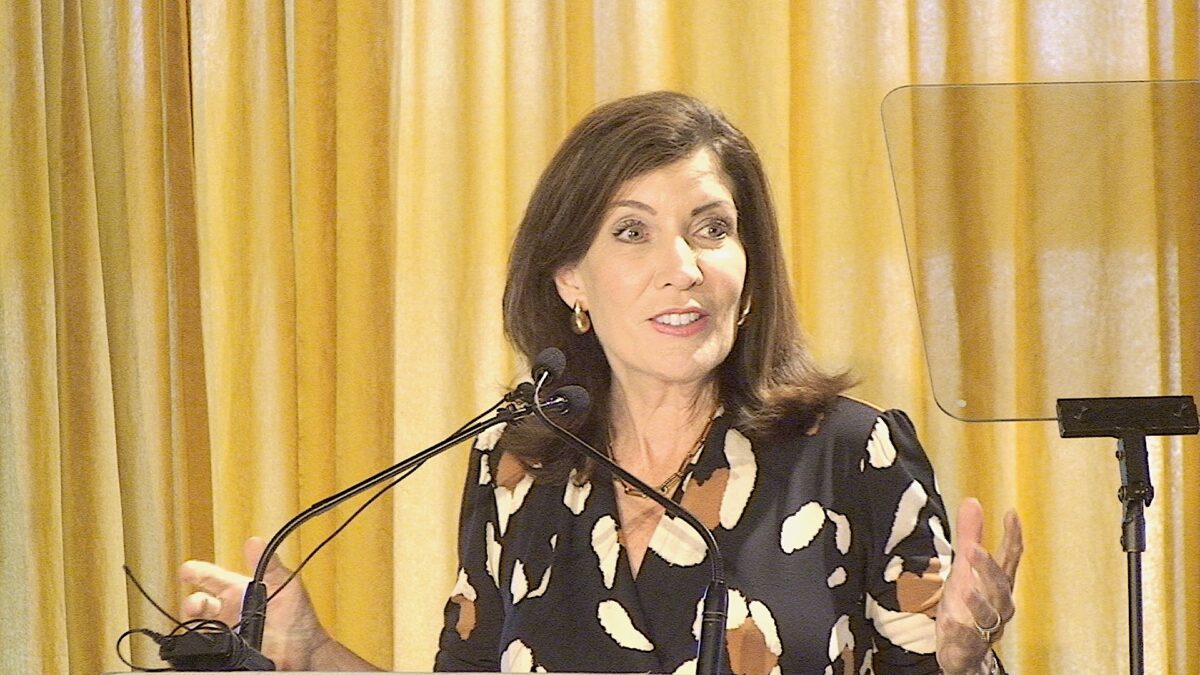
Breakfast was served at Shadows on the Hudson the morning of Oct.16, but few were eating as they listened to Bruce McCain”™s take on the recovery ”“ one he predicted will be slower than any other recession the country has experienced in decades.
McCain, Key Private Bank”™s chief economic strategist, told a small group of investors and business owners gathered for his presentation that the country may be turning the corner on the recession, but true economic recovery is going to be slow, with America having to relearn a new source of income now that the housing market has gone bust.
“While there”™s still a lot of uncertainly about the economy, even downright pessimism, we are seeing the country coming out of the first stage of the recession,” said McCain. What lies ahead, however, is a slow comeback hampered by a weak U.S. dollar, driven by housing and related financial sectors that gambled heavily in the marketplace.
McCain outlined the slow steps the recession has taken while trying to climb out of the abyss. “In March, 2009, 66 percent of America expressed concern about the economy; that has come down to 50 percent as of August, but we expect to see growth slow after this initial ”˜snap-back”™ ”“ we do believe things will get better from here on, though not as well as it has in the past. We expect the economy to continue on the path to recovery,” said McCain, albeit at an anemic rate compared with the country”™s previous recessions.
Â
“Consumer spending is a major concern,” said McCain. “While the country is past the point of profligate spending that went on in the past, consumers have concerns about losing their jobs.” Since 70 percent of the country”™s GDP depends on consumer spending, America”™s reluctance to splurge has put a significant crimp in GDP numbers. “As people become more comfortable that the recession is slowing, I think we will see a rise in spending.”
Â
On the flip side, said McCain, “business confidence, which tends to lead consumer confidence, is improving markedly. Business is better set up for some rebound. Most have cut back on inventory and become leaner in employment…but there are lingering concerns that sales need to improve; and they do.
“Businesses are pretty pressed in terms of the competition and the margins they face in costs of energy and commodities,” he said. “As a result, I don”™t think businesses are going to get too far ahead in actual improvement of their sales. We do need to keep in mind that some of the debates in Washington have business owners concerned about what the costs will be in the future. Whether a company will put a new plant in place or expand is a question mark because of the need to know what type of policy is going to be coming from the capital.”
McCain said emerging markets are making progress, with China making strong progress in the spring and continuing to show strength. “Some of the developed markets seem to be making a better comeback than has happened in the past,” McCain told the group. “Prior to the actual downturn, exports were a strong source of support for the U.S. economy. If that rebounds, that would help to pull us out of recession and give us a strong leg up to the next expansion.”
Â
Concern about employment will continue to plague confidence. “The ability of the U.S. economy to grow jobs seems to be declining; we know the US has come under pressure due to overseas competition. That seems to be causing a problem for U.S. job growth. A lot of the job creation we saw after the 2001 expansion came from the housing and finance-related support industries for housing. With housing not in the picture this time, we now need to find another alternative to create jobs. The fears the media has reported about job creation may be legitimate, and it may be a more difficult recovery if that proves to be the case.
Â
“The general public, as well as from policy standpoint and from other markets, is looking at the large deficits we are running and suggests we will see strong inflation in the future. It is a major risk ”“ but I think inflation will be more delayed than many realize.”
On the plus side: We are nowhere near hyperinflationary conditions and money is now available via loans, McCain said.
Overall, McCain said the country can expect this recession to linger through 2010.
“The wild cards are gas prices and taxes,” he said. “Should energy prices rise, consumers will have less money for discretionary spending. If corporate taxes are raised to pay for the stimulus or health care plan, businesses may be less likely to hire employees.”


















